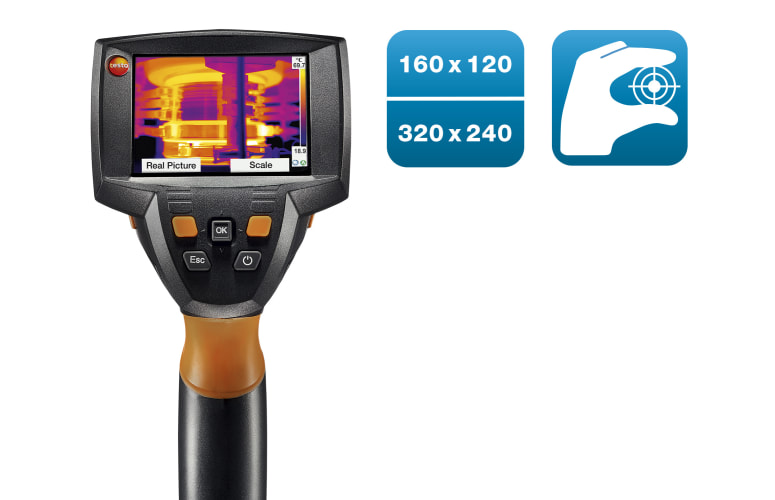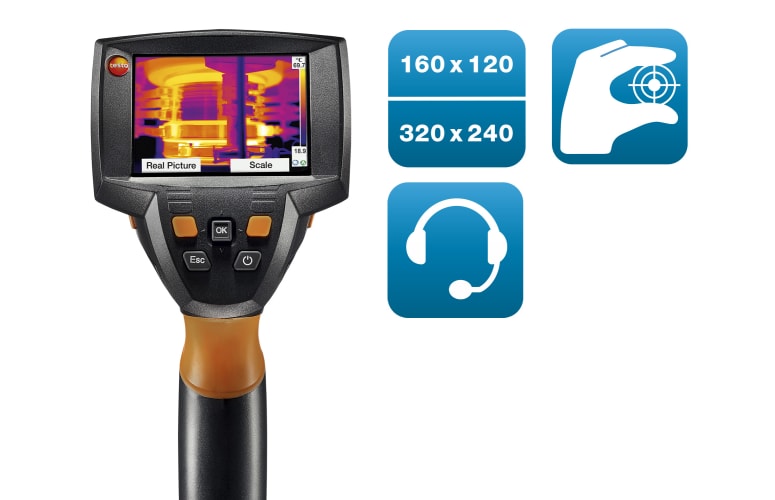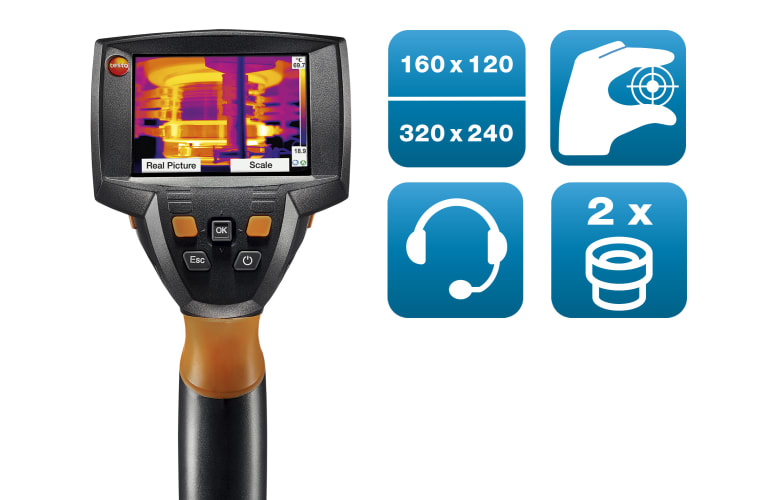The patent-pending SuperResolution technology improves the thermal image quality of your Testo imagers by software upgrade. With SuperResolution, the images have a higher resolution, and are therefore more detailed. The important thing is that: SuperResolution technology always records genuine temperature measuring values – there are no artificial intermediate values projected! This means that this technology offers the possibility - without using larger, more expensive detectors - of recording more temperature measuring values. In addition to this, the improvement in the quality of the recorded thermal image means at the same distance between the thermographer and the measurement object, considerably smaller measurement objects can be recorded. At the same time, more details can be identified with images captured from a great distance. The SuperResolution upgrade is available for the Testo thermal imagers testo 870, 875, 875i, 882, 885 and 890.
SuperResolution in building thermography
In building thermography, SuperResolution technology is ideally suited to fast and effective detection of building damage. Energy losses in buildings’ heating or air conditioning systems can also be analyzed with the help of the high-resolution thermal images. The high level of detail in the image makes inadequate insulation, resulting heat losses or construction defects clearly visible. Leakages can also be displayed precisely in the thermal image using SuperResolution technology.
SuperResolution in industrial thermography
SuperResolution technology also plays an important role in industrial maintenance – above all in the detailed early detection of imminent damage in production-related plant components. In the case of mechanical components too, thermal irregularities (e.g. due to friction or incorrect adjustment) can indicate an elevated level of stress. In the field of research and development, the geometric resolution of the thermal image is of great significance. This is improved by a factor of 1.6 by SuperResolution technology. This means that even smaller objects can be recorded, which enables the measurement of the smallest possible structures.







































